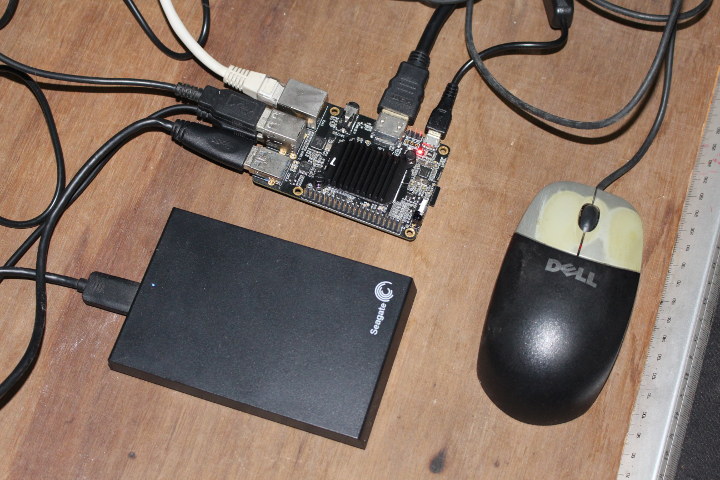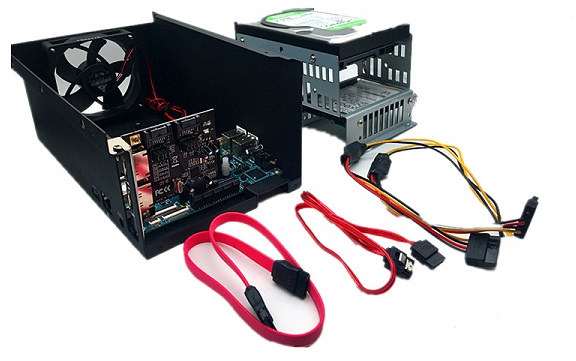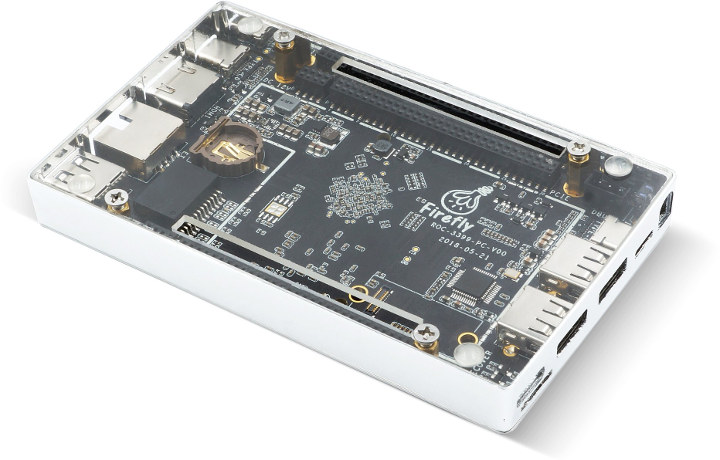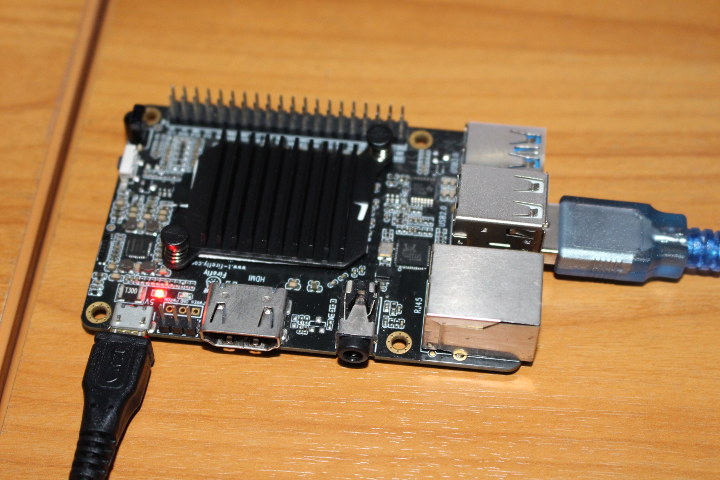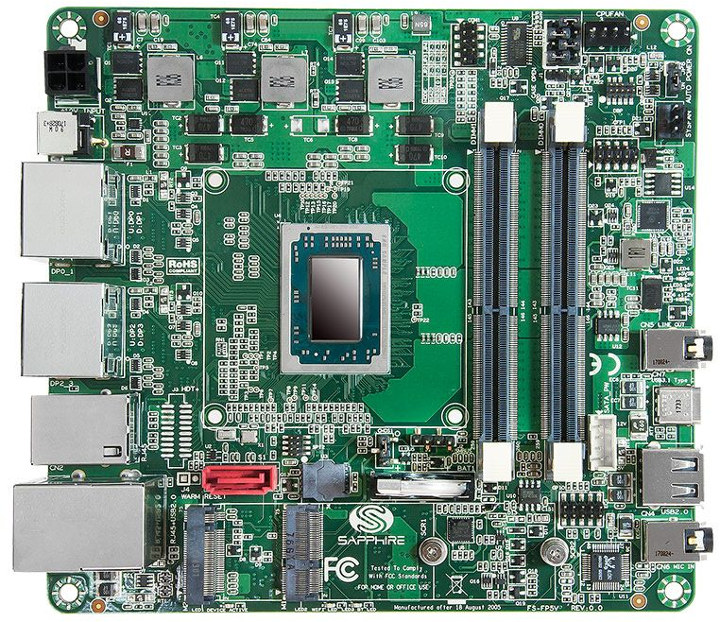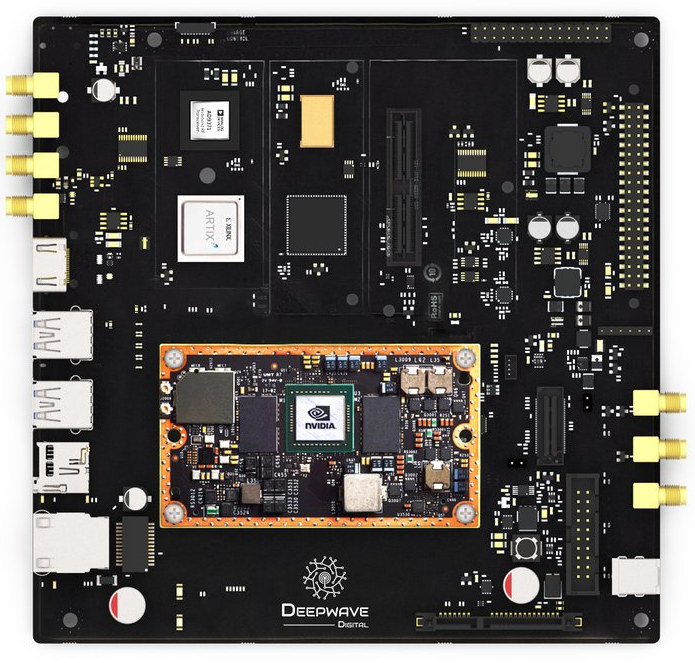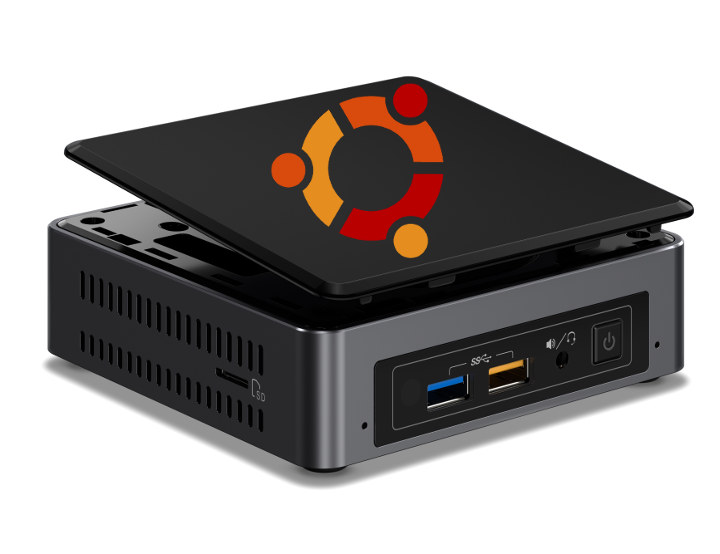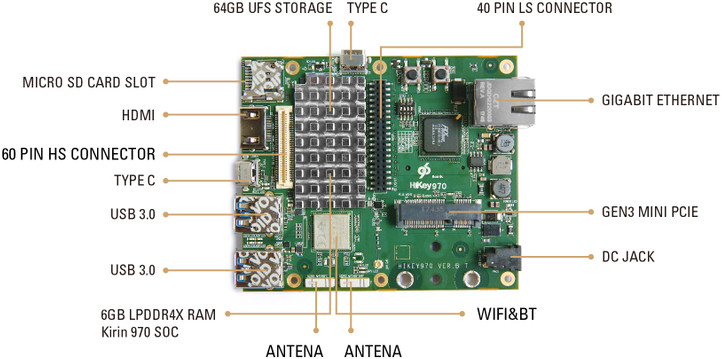Firefly team from T-chip company has send me some of their Rockchip development boards, and we’ve already checked the provided boards and accessories, so today I’ll report my experience with one of the board: ROC-RK3328-CC also known as Renegade. I won’t test it with Android, since I have already reviewed RK3328 Android TV boxes such as Zidoo X7, and I’ve been told the team is hard at work with Android 8.1 SDK, so an Oreo image should be released in a few weeks/months. So I had initially planned to report my experience with one of the Linux images, then show how to install mainline Linux (currently 4.17) to the board, and reports what works. However, I encountered many issues, although likely not directly related to the board or its software support, so instead I’ll write about my experience getting started with the board, and list all the issues I had […]
Pine64 Launches a $45 Dual SATA NAS Enclosure for ROCKPro64 Board
ROCKPro64 is one of the most affordable Rockchip RK3399 boards, as you can purchase it for as low as $60 with 2GB RAM, and $80 with 4GB RAM. Pine64 – the company behind the board – also offers add-on boards such as a PCIe card to connect up to two SATA drives. The company has now leveraged the latter in their ROCKPro64 metal desktop/NAS casing specifically designed for ROCKPro64 boards, and capable of holding two 2.5″/3.5″ SATA drives.Key features of ROCKPro64 Desktop/NAS case: Compatible with ROCKPro64 boards only SATA – Accommodates either 2x 2.5″ SATA drives or 2x 3.5″ SATA drives or a mix of 2x 2.5″/3.5″ SATA drives Power Supply – 12V DC Dimensions – 232.4mm (Width) x 105.0mm (Height) x 145.2mm (Depth) The case also ships with 2 SATA data cables, and a custom designed power supply cable as shown below. However, the company also notes that ROCKPro64 […]
Renegade Elite (ROC-RK3399-PC) RK3399 Single Board Computer Launched for $99 on Indiegogo
Libre Computer and Firefly Team previously collaborated on Renegade (ROC-RK3328-CC) board powered by a Rockchip RK3328 quad core Cortex A53 processor and mostly following Raspberry Pi 3 form factor. We already knew both companies worked again on another Rockchip RK3399 single board computer, and were expected to launch it in July via a crowdfunding campaign. The good news is that Libre Computer has just launched Renegade Elite (aka ROC-RK3399-PC) SBC on Indiegogo. Renegade Elite board specifications: SoC – Rockchip RK3399 hexa core processor with 2x Arm Cortex-A72 @ up to 2.0 GHz + 4 Arm Cortex-A53, Arm Mali-T860MP4 with OpenGL ES 1.1 / 1.2 / 2.0 / 3.1 / 3.2 and OpenCL 1.2 support System Memory – 4GB LPDDR4 SDRAM Storage – eMMC 5.x interface for storage modules up to 128GB, micro SD card slot, and 128Mbit SPI NOR flash Video Output / Display I/F HDMI 2.0 connector Embedded DisplayPort (eDP) […]
Flashing Firmware to Rockchip Devices in Linux with rkdeveloptool Open Source Utility
It’s been possible to flash firmware to Rockchip devices in Linux with upgrade_tool command line tool for many years, but the utility is closed-source and only supports “RK Firmware” files that are also used for OTA firmware updates, but not “raw firmware” that you’d flash directly to micro SD cards for example. This week-end as I played with ROC-RK3328-CC board, I encountered some instability issues with micro SD cards, so I instead relied on an eMMC flash module. The only problem was that Firefly Team only releases “raw firmware” files, so I was unable to use upgrade_tool, and instead found out rkdeveloptool open source utility was used to flash raw firmware images in Firefly’s Wiki. The first step is to connect a male to male USB Type A cable (like that one on eBay) between the board and the host computer, and connect a USB power adapter to the board. […]
Sapphire FS-FP5V Embedded Board Features AMD Ryzen Embedded V1000 Processor, Four DisplayPort Outputs
We’ve previously covered UDOO Bolt AMD Ryzen Embedded V1000 development board that’s offered for $229 and up on Kickstarter, and targets the maker community. Another board with Ryzen Embedded processor is SAPPHIRE FS-FP5V 5″ board with support for up to four independent displays, and suitable solution for digital signage, POS terminal, electronic gaming machines, medical imaging, thin clients, and so on. Sapphire FS-FP5V specifications: SoC AMD Ryzen Embedded V1202B 2 cores / 4 threads @ 2 GHz / 3.6 GHz (Turbo) with Radeon Vega 3 @ 1100 MHz; 12-25W TDP AMD Ryzen Embedded V1605B 4 cores / 8 threads @ 2.06 GHz / 3.6 GHz (Turbo) with Radeon Vega 8 GPU @ 1100 MHz; 12-25W AMD Ryzen Embedded V1756B 4 cores / 8 threads @ 3.25 GHz / 3.6 GHz with Radeon Vega 8 GPU @ 1100 MHz; 35-54W TDP AMD Ryzen Embedded V1807B 4 cores / 8 threads @ 3.35 […]
Air-T Artificial Intelligence Radio Transceiver SDR Platform Combines NVIDIA Jetson TX2 and Xilinx Artix-7 FPGA (Crowdfunding)
If often write about low end and cheaper hardware on this blog, but not in this post. Deepwave Digital Air-T (Artificial Intelligence Radio – Transceiver) is a high-end software defined radio platform with continuous frequency coverage from 300 MHz to 6 GHz. The board combines AD9371 RFIC transceiver providing up to 2 x 2 MIMO of 100 MHz of receiving bandwidth, a Xilinx Artix-7 FPGA, and NVIDIA Jetson TX2 module. Air-T hardware specifications & key features: Software-defined Radio Analog Devices 9371 2×2 MIMO transceiver 2 x RX channels (100 MHz each) 2 x TX channels (100 MHz each) Auxiliary RX channels: Observation & Sniffer. Note: Can use either Observation or Sniffer at one time; utilizes one of the RX channels NVIDIA Jetson TX2 for processing 256 NVIDIA CUDA core GPU 6 CPU cores – 2x NVIDIA Denver2, 4x Arm Cortex-A57 8GB RAM 32GB eMMC flash Xilinx Artix-7 FPGA with75k logic […]
Canonical Releases Ubuntu 16.04 LTS Certified for Intel NUC
In the x86 world, the theory is that you can take a single Linux distro image should work on any x86 compatible hardware. But for Atom-class processors however, including Bay Trail, Cherry Trail, Apollo Lake and Gemini Lake it has not always been the case, especially with features like audio output, Bluetooth, touchpad, and others. That’s why for example, Linuxium (Ian Morrison) decided to write isorepin.sh script in order to respin Ubuntu ISO images for such platforms and fix various issues. However, it appears Canonical and Intel have decided to take matters into their own hand, and have now released Ubuntu 16.04 LTS certified for Intel NUC mini PCs, kits, and boards for IoT deployment. Canonical made available both Ubuntu Desktop and Ubuntu Core images. Most supported devices are based on Intel 7th generation Intel Core processors: NUC7i5DNKPC Mini PC with Intel Core i5-7300U NUC7i3DNKTC Mini PC with Intel Core […]
Hikey 970 Documentation, HiAI DDK, Linux Firmware Images, and Support Forums
Hikey 970 board has impressive specifications with Huawei Kirin 970 SoC featuring an octa-core Arm Cortex A73/A53 processor and an Arm Mali-G72-MP12 GPU, coupled with 6GB LPDDR4x and 64GB UFS storage. It’s also one of the first broadly available developer platforms equipped with a Neural Processing Unit for artificial intelligence applications. However when it launched in April, Hikey 970 documentation was lacking, and despite the board is supposed to run both Android (AOSP) and Linux distributions such as Ubuntu or Debian, so far only AOSP is shown in the download section, with Linux distributions “coming soon”. But if you want to start as soon as possible there are still some good news. First, some documentation for the board has been released on Github, including getting started guides, hardware documentation (schematics, user manual, etc..), and some instructions to build AOSP from source code, and flash it to the UFS storage. If […]


